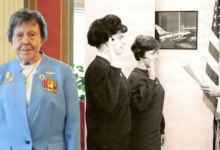School nurses asked to be vigilant as head lice on the rise

School nurses should expect to see a surge in the number of children with head lice, as cases have spiked since the beginning of September, according to data from NHS England.
NHS England said there were over 12,700 visits to the NHS health advice page on head lice and nits on the NHS website between 15-21 September, which is 34% more than were made between 1-7 September.
“Head lice are a common problem and school nurses can offer advice to parents alongside providing support about other issues”
Sallyann Sutton
Visits to the page peaked on Monday 18 September when there were 2,196 in a day – the equivalent of one click every 39 seconds, said NHS England in a statement on the “spike”.
This surge in interest in head lice coincides with the start of the school year, indicating that some schools may be suffering from a head lice outbreak following the summer holidays.
Commenting on the spike, chief nursing officer for England Dame Ruth May said: “Head lice and nits are a common issue, especially among young children and families in close contact with one another.
“Once detected, there is no need to consult a GP, but treatment should begin immediately and all household members should be checked and treated to stop further spread,” she noted.
She added: “The nhs.uk head lice and nits advice page provides the latest advice to manage the condition and help keep any outbreaks of head lice and nits under control.”
Sallyann Sutton, registered nurse and interim professional officer at the School and Public Health Nursing Association (SAPHNA), said the rise in head lice cases was not unexpected at this time of year.
“The increase is not unusual when children return to school and in close proximity to each other,” Ms Sutton told Nursing Times.
She highlighted that schools were used to offering advice to parents to be vigilant and check their child’s head regularly using a fine comb.
She added: “Head lice are a common problem and school nurses can offer advice to parents alongside providing support about other issues including toilet training, managing medical conditions, support with emotional and behaviour.”
The NHS guidance on head lice recommends wet combing with conditioner and a fine-toothed comb as the best method for removing lice and nits, in the days after they are detected.
This should be carried out on days one, five, nine and 13 to catch any newly hatched head lice and all household members’ hair should be checked again on day 17.
Some medicated lotions or sprays can also be used to kill head lice, however products containing permethrin, head lice “repellents” and electric combs for head lice should be avoided.
In addition, tree and plant oil treatments should not be used because they are ineffective. These include tea tree oil, eucalyptus oil and lavender oil herbal remedies
The NHS does not recommend using medicated lotions and sprays for head lice prevention because they can irritate the scalp.
There is no need for children being treated for head lice to stay home from school.






